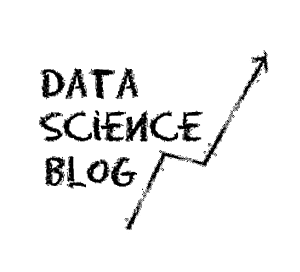Leveraging Data Science for Vaccine Access and Administration
As people across the world become eligible for receiving their doses, governments and pharmaceutical companies must act efficiently to provide those vaccines. Alongside distribution, people need more information about these newer vaccines. As a solution for both of these obstacles, data science is a useful tool for vaccine development, distribution, and access throughout the COVID-19 pandemic.
From the initial stages of social distancing and vaccine development to broadening access to the vaccines, data science uses information from countless resources to provide evidence-based, actionable recommendations. Governments and health care providers then act upon this data to help the public and move towards the global goal of eliminating the virus.
Vaccine Development
Since the pandemic began, vaccines have been a sign of hope and a return to a new normalcy. However, getting to effective vaccine distribution first required using data science to develop the doses themselves.
The COVID-19 vaccines have been some of the fastest-developed inoculations in history, which is partly because of the efforts of data scientists. Using machine learning, researchers were able to analyze the sequences of strains of the virus and establish what parts a vaccine would best respond to. Specifically, the sequences had to be those that would be less likely to mutate in the future and less likely to cause an adverse reaction in humans with an injection.
Machine learning helped scientists predict and theorize about which proteins would be the best to work within the SARS-CoV-2 strains. From there, they proceeded with creating vaccines that are now in use all over the world, like Pfizer’s or Moderna’s.
Then, as vaccines become more available, governments again rely on data science to dictate eligibility. Data analytics systems take into account exposure risk, demographics, jobs, and health conditions, which have helped countries break up eligibility into phases.
Supply and Demand
Vaccine supply chains had rocky beginnings throughout the world. In Germany, residents faced shortages of doses, where demand far outweighed the available vials. This type of shortage is especially dangerous, as it can lead to an increase in cases or a full-on spike.
To avoid these uneven dynamics, data science can provide more accurate projections of how many vaccines regions will need on a weekly basis. Data science systems that use machine learning can account for the population that’s eligible and historical COVID-19 vaccination numbers. Then, as eligibility opens up, these systems predict how many vaccines a facility or county will need in the future.
Vaccine administrative organizations can then communicate better with the government to request the doses they will properly handle and use weekly.
In the United States, West Virginia is working with data science dashboards to identify who is most at risk of contracting the virus. Then, they can request the right amount of vials each week and give them to the people who need them the most.
Information Access
As new vaccines and government mandates come into play, residents all over the world need more information to feel safe and to know what they should do. Vaccine scams, for example, have increased with distribution. These scams will ask for personal information like a Social Security number or a form of payment.
To avoid these scams and learn about the vaccine options available, the public needs more access to information. Data science is again helpful to distribute this information.
Google has become a leader in information access with its Intelligence Vaccine Impact initiative. With this program, Google uses machine learning and artificial intelligence (AI) to process data regarding government policy changes, vaccine availability, eligibility, and demographics. That way, people know when they can receive a vaccine, the research and information that supports the vaccines, and what scams to avoid along the way.
Then, based on the vaccine information Google gathers, data scientists can provide a clearer trajectory of the pandemic globally and locally as vaccines help cases go down.
A Data-Driven Path Forward
Data science provides solutions for vaccine access, distribution, and administration. With these powerful dynamics in place, it’s clear that data will lead the world towards a healthier future. Based on evidence from the pandemic, data helps governments and health care providers offer the best solutions for eliminating the virus and protecting people everywhere.




Leave a Reply
Want to join the discussion?Feel free to contribute!